Home
Britain went into a frenzy of iconoclasm. The statue of Winston Churchill in Parliament Square was hidden by the Mayor of London in wooden crating. Boris Johnson, the Prime Minister, said: ‘It is absurd and shameful that this national monument should today be at risk of attack by violent protestors.’ The next day he accused right-wing protestors of ‘racist thuggery’ when they gathered in London to take on supporters of Black Lives Matters, but, failing to confront them, attacked the police instead. A man seen urinating next to a memorial for PC Keith Palmer at the railings of parliament was sent to jail for two weeks convicted of outraging public decency. The Prime Minister promised a cross-government commission on racial inequality. The Guy’s and St Thomas’ NHS Foundation Trust announced it had ‘decided to remove statues of Robert Clayton and Thomas Guy from public view’; they were boxed up. Thomas Guy had made money for the foundation of the hospital by owning, then selling, shares in the South Sea Company; his statue from 1734 is listed Grade II. Robert Clayton, a Lord Mayor of London, had served as an assistant to the Royal African Company 1672-81; his statue by Grinling Gibbons from 1714 is listed Grade I.
A steroid called dexamethasone was found to benefit Covid patients needing oxygen or ventilator treatment. At the beginning of the week, Sunday 14 June, total deaths from Covid-19 stood at 41,662; a week earlier the total had been 40,465. Boris Johnson commissioned a review into the two-metre social distancing guidance. In England single adults living alone — or with children under 18 — were permitted to form a ‘support bubble’ with one other household of any size, visiting or even staying overnight. The law was made by a statutory instrument. Places of worship were opened for private prayer by individuals; tourists were not to be admitted unless they prayed. The wearing of face coverings on public transport was made part of conditions of carriage (like having a ticket). Three stabbings and a rape punctuated two illegal raves, one by 4,000 people at Daisy Nook country park at Failsworth, Lancashire, and another by 2,000 at Carrington in Greater Manchester.
The Department for International Development was to be merged with the Foreign Office and aid disbursements aligned to British interests. Britain’s GDP was found to have plummeted by 20.4 per cent in April. After a campaign by Marcus Rashford, the Manchester United footballer, the government agreed to continue free school meal vouchers over the summer. The government ruled out extending the Brexit transition period beyond 31 December.
Abroad
Total deaths attributed to coronavirus by dawn on Sunday 14 June reached 432,901, an increase of 8 per cent on the week before. The total deaths in Brazil, at 42,791, came second only to the United States, which had seen 117,527. China put under lockdown an area round the Xinfandi market, which supplies 80 per cent of Beijing’s meat and vegetables, after dozens of coronavirus cases were detected. India began converting 500 railway carriages to provide 8,000 beds for coronavirus patients in Delhi. Prince Joachim of Belgium, who caught Covid-19 after attending a party in Cordoba, Spain, was fined €10,400.
President Donald Trump of the United States signed an executive order on police reform, tying some federal grants to ‘best practices’. French police used teargas on protestors in Paris. French police also protested and threw handcuffs on the ground, saying they had been ‘insulted’ by accusations of brutality and racism. The US Supreme Court ruled it illegal for employers to sack workers on grounds of their sexual orientation or gender identity. Al Qaeda featured a picture of George Floyd in its online magazine, One Ummah, and told American readers: ‘Not even the Democrats can help you but we can.’
North Korea blew up an empty office for liaison with the South near the border. At least 20 Indian soldiers were killed in a clash with Chinese forces in disputed Kashmir. In north-eastern Nigeria an offshoot of Boko Haram called Islamic State West Africa Province said it was behind an attack on Monguna, which shelters 100,000 people who had fled their homes during the past decade of Islamist violence. Villagers in the Acobamba province of Peru released eight workmen whom they had held captive, fearing they were installing deadly 5G aerials. CSH
Got something to add? Join the discussion and comment below.
Get 10 issues for just $10
Subscribe to The Spectator Australia today for the next 10 magazine issues, plus full online access, for just $10.
You might disagree with half of it, but you’ll enjoy reading all of it. Try your first month for free, then just $2 a week for the remainder of your first year.

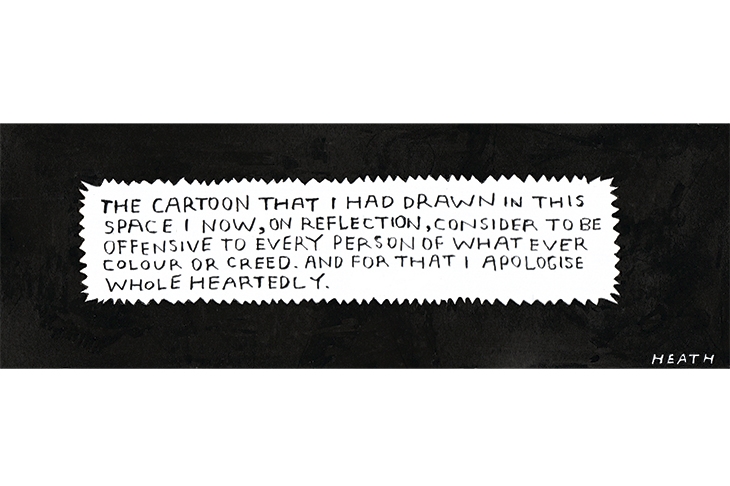
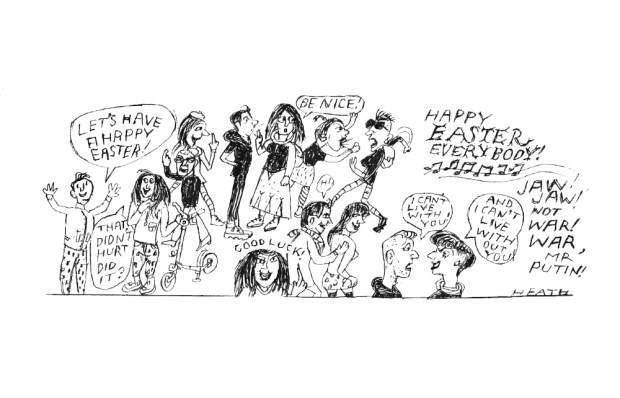
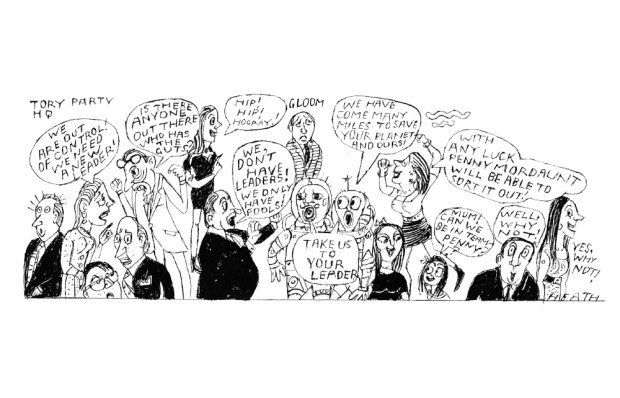
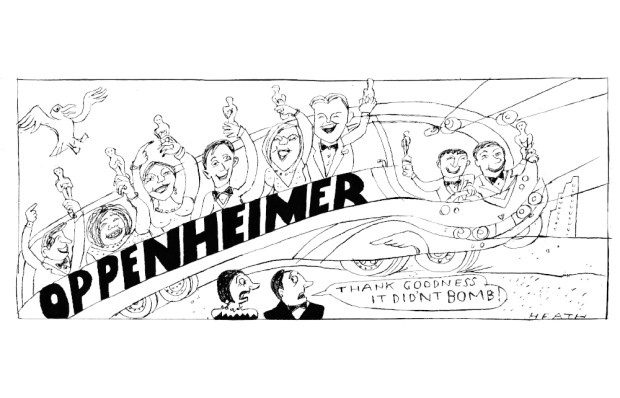
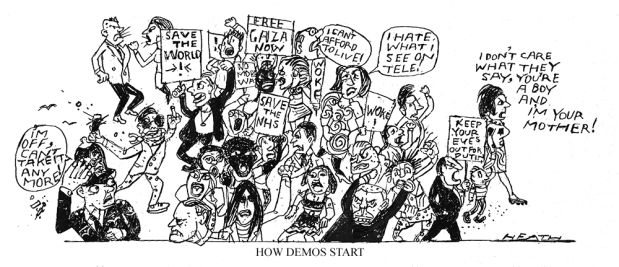
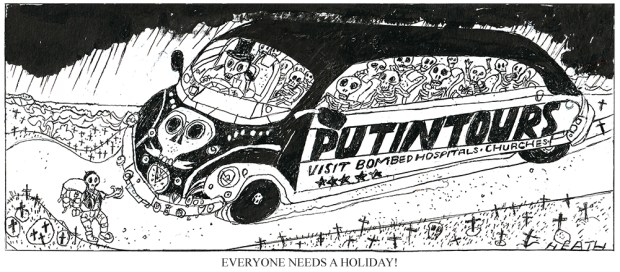
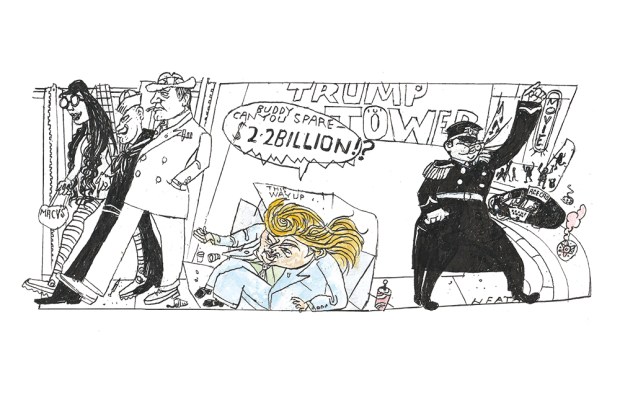






Comments
Don't miss out
Join the conversation with other Spectator Australia readers. Subscribe to leave a comment.
SUBSCRIBEAlready a subscriber? Log in